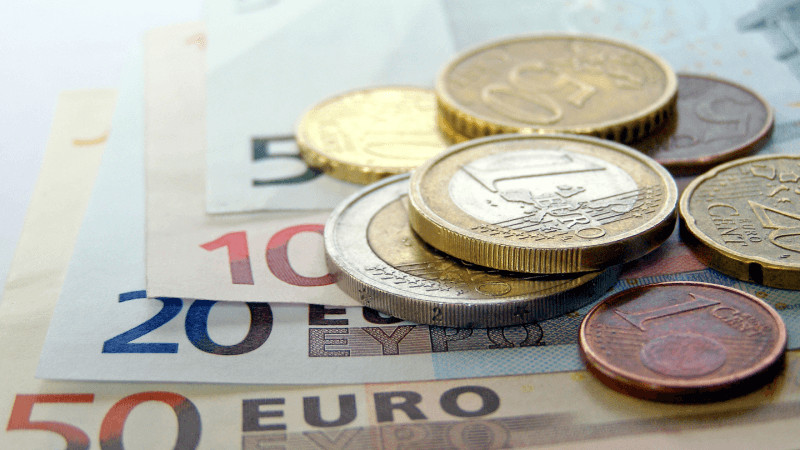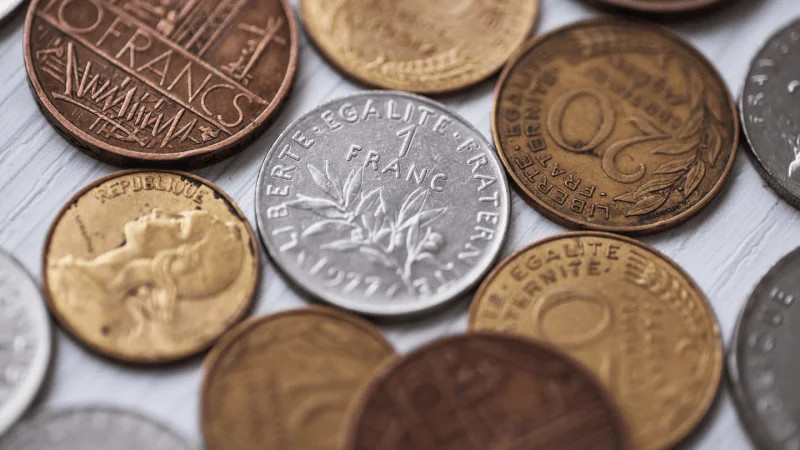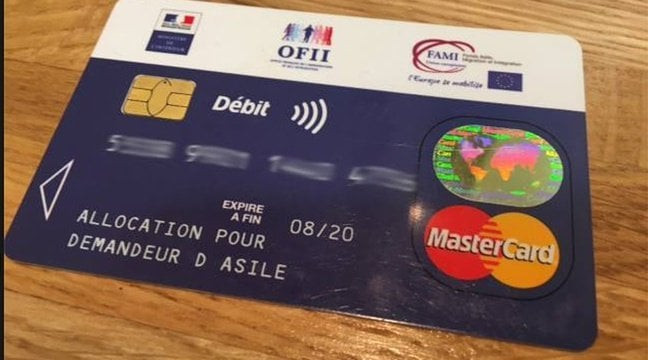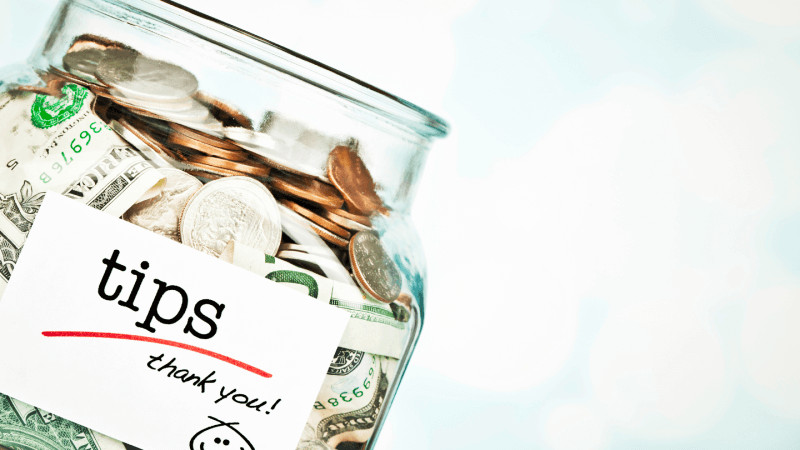Does France Use Euro? A Comprehensive Guide for Americans
Does France Use Euro? Yes, France uses the euro (€) as its official currency. This comprehensive guide, brought to you by euro2.net, will delve into everything Americans need to know about using the euro in France, from exchange rates to payment methods, ensuring a smooth and informed financial experience. We’ll also explore the advantages euro2.net offers in navigating the Eurozone economy, providing real-time exchange rates and expert analysis. Discover all you need to know about navigating the Eurozone currency, exchange rates, and financial tools for your travels or business dealings.
1. The Euro in France: An Overview
1.1. Is the Euro France’s Official Currency?
Yes, the euro (€) is the official currency of France. It replaced the French franc (FF) in 2002, simplifying transactions and integrating France into the Eurozone. Understanding the euro is crucial for anyone traveling to or conducting business in France.
1.2. What is the History of the Euro in France?
The euro was introduced as a “book currency” on January 1, 1999, but physical banknotes and coins didn’t enter circulation until January 1, 2002. The transition from the French franc was a significant economic event, marking closer financial integration with other European Union member states. According to the European Central Bank (ECB), the introduction of the euro facilitated trade and price transparency within the Eurozone.
Alt text: Euro banknotes and coins, the official currency of France and the Eurozone.
1.3. What Happened to the French Franc?
The French franc (FF) was the official currency of France for centuries before being replaced by the euro. First minted in the 14th century, it underwent several changes, including a redenomination in the 1960s. While no longer in circulation, the franc still holds cultural significance, with references to it often used in colloquial expressions about money. Even though its gone, the French still reference it as a comparison tool to show the rising costs of goods.
Alt text: A collection of old French Franc coins, representing the former currency of France.
2. Understanding Euro Exchange Rates for Americans
2.1. How Does the Euro Exchange Rate Affect Americans?
The euro exchange rate directly impacts the purchasing power of Americans in France. A favorable exchange rate means you get more euros for your dollars, making travel and purchases more affordable. Conversely, an unfavorable rate reduces your spending power. Monitoring exchange rates is crucial for budgeting and financial planning.
2.2. Where Can I Find the Most Up-To-Date Euro Exchange Rates?
For the most current exchange rates, euro2.net offers a real-time currency converter and exchange rate tracker. These tools allow you to monitor the euro’s value against the US dollar and other major currencies, ensuring you make informed financial decisions. Bloomberg and Reuters also provide reliable, up-to-date exchange rate information.
2.3. What Factors Influence the Euro Exchange Rate?
Several factors influence the euro exchange rate, including:
- Economic Performance: The economic health of the Eurozone, including GDP growth, inflation, and unemployment rates.
- Interest Rates: Decisions made by the European Central Bank (ECB) regarding interest rates.
- Political Stability: Political events and policy changes within the Eurozone.
- Global Events: International events such as trade wars, pandemics, and geopolitical tensions.
According to the International Monetary Fund (IMF), these factors can cause significant fluctuations in the euro’s value.
3. Euro Denominations: Coins and Banknotes
3.1. What Euro Coins Are in Circulation?
Euro coins come in eight denominations: 1 cent, 2 cents, 5 cents, 10 cents, 20 cents, 50 cents, €1, and €2. Each coin has a common European side and a national side with designs specific to the issuing country.
3.2. What Euro Banknotes Are in Circulation?
Euro banknotes are available in seven denominations: €5, €10, €20, €50, €100, €200, and €500. However, the €500 note is being phased out, though it remains legal tender.
3.3. How Can I Recognize Genuine Euro Banknotes?
To verify the authenticity of euro banknotes, look for the following security features:
- Watermark: Visible when held against the light.
- Security Thread: Embedded within the paper.
- Hologram: Changes when tilted.
- Color-Changing Ink: On the €50, €100, €200, and €500 notes.
The ECB provides detailed information on how to identify genuine euro banknotes.
| Denomination | Coins/Notes |
|---|---|
| Coins | 1c, 2c, 5c, 10c, 20c, 50c, €1, €2 |
| Notes | €5, €10, €20, €50, €100, €200, €500 |




4. Exchanging Currency in France: Options for Americans
4.1. Where Can I Exchange US Dollars for Euros in France?
Several options are available for exchanging US dollars for euros in France:
- Currency Exchange Bureaus: Conveniently located in airports and tourist areas, but often with higher fees.
- ATMs: Offer competitive exchange rates, but may incur fees from both your bank and the ATM operator.
- Local Banks: Provide secure transactions, but may have less favorable exchange rates.
- Online Currency Exchange Services: Offer competitive rates and home delivery, but require advance planning.
4.2. What Are the Pros and Cons of Each Exchange Method?
- Currency Exchange Bureaus:
- Pros: Immediate currency exchange, convenient locations.
- Cons: Higher fees, less favorable exchange rates.
- ATMs:
- Pros: Better exchange rates, widespread availability.
- Cons: Potential fees, daily withdrawal limits.
- Local Banks:
- Pros: Secure transactions.
- Cons: Less competitive rates, service fees.
- Online Currency Exchange Services:
- Pros: Competitive rates, home delivery.
- Cons: Requires advance planning, limited physical locations.
4.3. How Can I Find the Best Exchange Rates?
To secure the best exchange rates:
- Compare Rates: Check rates at multiple exchange locations and online services.
- Avoid Airport Exchanges: These typically have the highest fees.
- Use a Credit or Debit Card: Often offers better rates than exchanging cash, but be aware of foreign transaction fees.
- Monitor Exchange Rates: Use euro2.net’s tools to track rates and exchange currency when favorable.
5. Payment Methods in France: A Guide for Tourists
5.1. What Payment Methods Are Widely Accepted in France?
France offers various payment options:
- Bank Cards: Including debit and credit cards.
- Euro Cash: Essential for smaller establishments and rural areas.
- Mobile Payments: Increasingly accepted, especially in larger cities.
5.2. Should I Use a Debit Card or Credit Card in France?
- Debit Card:
- Pros: Direct access to funds, lower fees.
- Cons: Limited fraud protection, spending limited to account balance.
- Credit Card:
- Pros: Rewards, travel insurance, better fraud protection.
- Cons: High interest rates, potential for debt.
5.3. What Are Prepaid Travel Cards and How Do They Work in France?
Prepaid travel cards allow you to load a set amount of money and use it like a debit card. They offer budgeting control and security, but may have fees for loading funds and transactions. Not every establishment may accept prepaid cards.
Alt text: A French debit card, commonly used for transactions in France.
6. Tips for Managing Money in France
6.1. How Much Cash Should I Carry in France?
Carry enough cash for small purchases, markets, and rural areas. For larger expenses, credit cards are widely accepted in urban centers. According to a survey by the Banque de France, while card payments are prevalent, cash remains important for smaller transactions.
6.2. How Does VAT Refund Work for Tourists in France?
Non-EU residents can claim a VAT (Value Added Tax) refund on purchases over €175 made in a single day. Obtain a retail export form when shopping and present it at customs when leaving the EU. This can result in significant savings on luxury items.
6.3. Is Tipping Customary in France?
Tipping is not obligatory, but it is appreciated. Many restaurants include a service charge (“service compris”) in the bill. Rounding up or leaving an additional 5-10% is a nice gesture for good service.
Alt text: A guide to tipping etiquette in France, showing appropriate tipping amounts.
7. Navigating Public Transportation in France
7.1. What Are the Best Ways to Pay for Public Transportation in France?
In major cities like Paris, consider purchasing a travel pass for unlimited rides on buses, metros, and trams. Contactless payments are also increasingly accepted.
7.2. How Can I Save Money on Transportation Costs?
- Purchase Travel Passes: Offer cost-effective travel within cities.
- Use Public Transportation: More affordable than taxis or rental cars.
- Walk or Bike: Explore cities on foot or by bike for shorter distances.
7.3. Are There Apps for Managing Transportation in France?
Yes, apps like Citymapper and SNCF Connect provide real-time information on routes, schedules, and fares, helping you navigate public transportation efficiently.
8. Eurozone Economic Overview
8.1. How Does the Euro Impact the French Economy?
The euro has profound effects on the French economy, influencing trade, investment, and monetary policy. The single currency promotes price stability and facilitates cross-border transactions within the Eurozone. However, it also limits France’s ability to independently adjust interest rates and exchange rates.
8.2. What Are the Key Economic Indicators to Watch in the Eurozone?
Key economic indicators include:
- GDP Growth: Measures the overall economic output.
- Inflation Rate: Indicates the rate at which prices are rising.
- Unemployment Rate: Reflects the percentage of the labor force that is unemployed.
- Interest Rates: Set by the ECB to manage inflation and stimulate economic growth.
8.3. How Does the European Central Bank (ECB) Influence the Euro?
The ECB is the central bank of the Eurozone, responsible for monetary policy. It influences the euro through interest rate decisions, quantitative easing, and other measures aimed at maintaining price stability and supporting economic growth. The ECB’s policies have a direct impact on the value of the euro and the overall economic conditions in France and the Eurozone.
9. The Impact of Global Events on the Euro
9.1. How Do Global Events Affect the Euro Exchange Rate?
Global events such as economic crises, political instability, and trade disputes can significantly impact the euro exchange rate. These events can create uncertainty in the market, leading investors to move their funds to safer assets, which can affect the demand for and value of the euro.
9.2. What Role Does the US Dollar Play in the Euro’s Value?
The US dollar is a major global currency, and its performance relative to the euro is closely watched. Changes in US economic policy, interest rates, and political stability can affect the demand for the dollar, which in turn affects the euro exchange rate. According to a report by the Federal Reserve, the dollar’s strength often inversely correlates with the euro’s value.
9.3. How Can I Stay Informed About Events Affecting the Euro?
Stay informed by:
- Following Financial News: Monitor reputable news sources like Bloomberg, Reuters, and The Wall Street Journal.
- Using Economic Calendars: Track key economic releases and events.
- Consulting Financial Experts: Seek advice from financial advisors or analysts.
euro2.net provides up-to-date analysis and insights on factors affecting the euro exchange rate.
10. Using euro2.net for Your Euro Needs
10.1. How Can euro2.net Help Me Manage My Euro Finances?
euro2.net offers a range of tools and resources to help you manage your euro finances, including:
- Real-Time Exchange Rates: Track the latest exchange rates between the euro and other currencies.
- Currency Converter: Convert currencies quickly and easily.
- Expert Analysis: Access insights and analysis on factors affecting the euro.
- News and Updates: Stay informed about the latest economic and financial news.
10.2. What Are the Benefits of Using euro2.net’s Currency Converter?
euro2.net’s currency converter offers several benefits:
- Accuracy: Provides real-time exchange rates for precise conversions.
- Ease of Use: Simple and intuitive interface.
- Comprehensive Coverage: Supports a wide range of currencies.
- Mobile Accessibility: Access the converter on any device.
10.3. How Can I Access euro2.net’s Expert Analysis on the Euro?
Access euro2.net’s expert analysis by visiting the website and navigating to the “Analysis” or “Insights” section. Here, you’ll find articles, reports, and commentary on the euro and the Eurozone economy.
FAQ
1. Should I exchange some cash into euros before our trip to France?
Yes, exchanging some cash into euros before your trip to France is a good idea to cover immediate expenses upon arrival and for smaller establishments that may not accept cards.
2. How does money work in France?
In France, you can typically pay for goods and services using cash, credit cards, or debit cards, with credit and debit cards being widely accepted in urban areas and cash being useful in smaller towns and markets.
3. Can I use US dollars in France?
No, France primarily uses euros and does not generally accept US dollars, so it’s essential to exchange your currency before or upon arrival.
4. Should I take cash to France?
Yes, it’s best to bring some cash to France, especially if you plan to visit small towns or markets where card payments may not be common.
5. What is the best way to exchange money for euros in France?
The best way to exchange money for euros in France is often through ATMs for competitive rates, but be mindful of potential fees from your bank and the ATM provider.
6. Are there any hidden fees I should be aware of when using ATMs in France?
Yes, be aware of potential foreign transaction fees from your bank and fees charged by the ATM provider when using ATMs in France.
7. How do I claim a VAT refund as a tourist in France?
As a tourist in France, claim a VAT refund by obtaining a retail export form for purchases exceeding €175 in a single day and presenting it at customs when leaving the EU.
8. Is it better to use a credit card or debit card in France?
Whether to use a credit card or debit card in France depends on your preferences; credit cards offer better fraud protection and rewards, while debit cards allow direct access to your funds and may have lower fees.
9. What should I do if my credit card is declined in France?
If your credit card is declined in France, first ensure you’ve informed your bank of your travel plans, then check your credit limit, and consider using an alternative payment method like cash or another card.
10. Are there any mobile payment options available in France?
Yes, mobile payment options like Apple Pay and Google Pay are increasingly available in France, especially in larger cities and retail establishments.
France uses the euro (€), and understanding how to manage your money is crucial for a smooth experience. By using euro2.net, you can stay informed about exchange rates, find the best ways to exchange currency, and make the most of your time in France. euro2.net provides the tools and insights you need to navigate the Eurozone economy with confidence.
Visit euro2.net today to stay updated on the latest euro exchange rates, access expert analysis, and utilize our currency converter for all your financial needs. Contact us at Address: 33 Liberty Street, New York, NY 10045, United States or call us at Phone: +1 (212) 720-5000.
